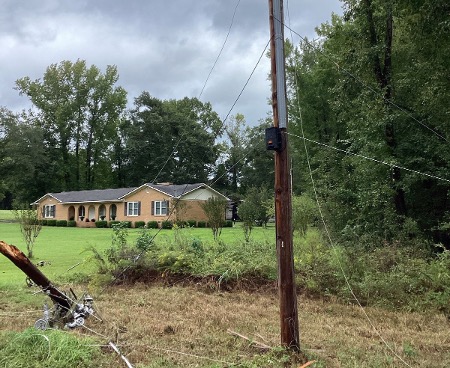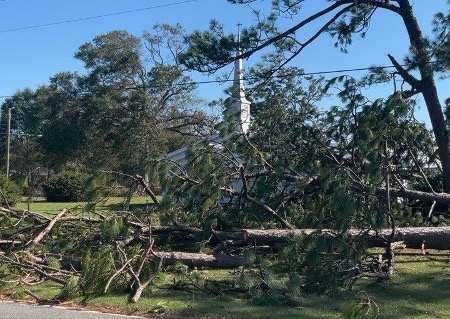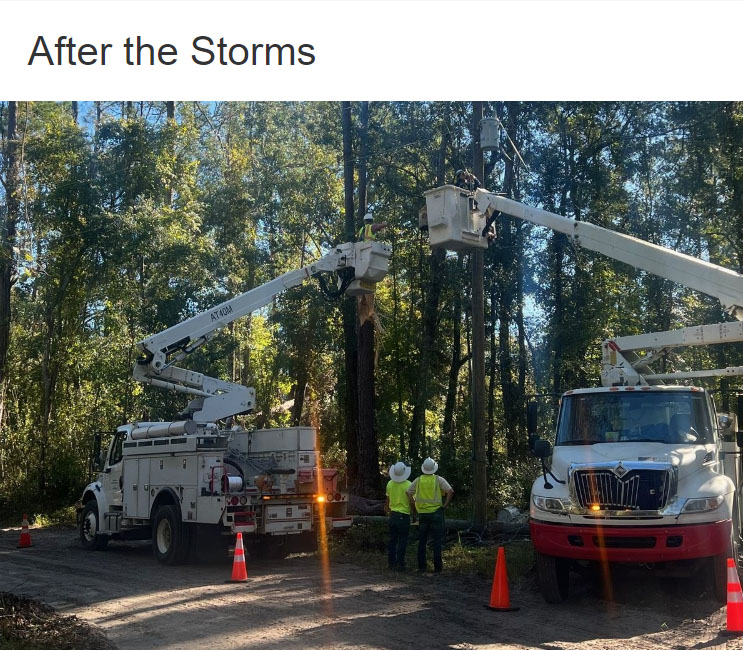After the Storms
October 18, 2024
Every season in which natural disasters are more devastating than anticipated, Congress must appropriate supplemental funds to help repair the destruction they cause.
- After Hurricane Helene, which was particularly destructive, and before Hurricane Milton, which caused even more devastation, FEMA advised the White House and Congress that it would need supplemental funds to get through the remainder of the hurricane season.
- Rather than call Congress back into session now, House Speaker Mike Johnson announced that he would reconvene Congress in a lame-duck session after the election to appropriate funds to address the financial cost of this destructive pair of hurricanes.
I have two suggestions for any lame-duck supplemental appropriations to improve FEMA’s coverage and operations:
- Include broadband, and
- Add a time limit within which FEMA must issue reimbursements.
Why it matters:
- As electric co-ops know, the cost to repair electric infrastructure damaged by a natural disaster is reimbursable by FEMA.
- When Conexon designs and builds fiber networks that are integrated into the electric distribution network and used for electric purposes (e.g., smart grid functions), the costs to repair the fiber and electronics of such networks are reimbursable as well.
- But, when a broadband network is designed and built as a stand-alone network, their repair costs are not covered by FEMA’s mandate.
1. Broadband, An Essential Service

The first thing I would suggest: The anachronism in FEMA’s statutory authority should be corrected. After all, broadband is widely experienced as an essential service; in fact, it’s subsidized and funded by multiple government programs.
Inclusion of broadband coverage in an emergency supplemental appropriations bill this fall will ensure repairs to fix damage to broadband networks from Hurricanes Helene, Milton, and other natural disasters are covered.
Then, during the next Congress, lawmakers should make a permanent change to FEMA’s authority to cover stand-alone broadband networks.
The bottom line: Broadband today is an essential service.
2. Making Time Matter

The second thing I would recommend Congress do is add a one-year shot clock to the time FEMA takes to reimburse applicants. There is only one consistent complaint I have heard over the years from our co-op partners about FEMA – the length of time it takes for reimbursement.
I am grateful that in our country, we bring tangible assistance to those hit by natural disasters. FEMA can usually be counted on in any national emergency. Co-ops can be counted on too – to send their crews, not just to their own neighborhoods, but across their states and the country. Conexon has the privilege of pitching in with our crews to join co-op crews to repair the damage done in communities.
That’s how we know that timely reimbursement from FEMA would benefit everyone.
How it works:
Most people are familiar with shot clocks in sports. Adding one to administrative processes reminds agencies that time matters. With a shot clock, a particular task is time-limited so that the administrative agency – in this case, FEMA – must act within the period or the matter is resolved in favor of the applicant.
FEMA could be required to review reimbursements for payment within a specified period, say one year, after which payment must automatically be made.
There are plenty of arguments against such time limits – that it limits an agency’s discretion, that some matters simply take longer, or that an agency will prioritize time-constrained matters over other matters that may be equally or more important.
I have worked at an agency with a shot clock, the FCC, on merger reviews. While the FCC will at times pause the clock, the one-year limit serves an important purpose. Time matters.
The big picture:
There is a lot of work yet to be done to clean up after Helene and Milton — to restore power and broadband, to rebuild homes, to help people put their lives back in order. My thoughts are with the folks still struggling.
When Congress returns in November, perhaps they can ensure that the families and communities who need help get timely support for all their essential services, including broadband.
